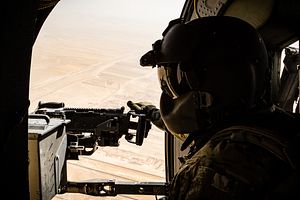Recent reports alleged that the U.S. military killed as many as 16 civilians in an airstrike in the eastern Afghan province of Nangarhar. U.S. officials denied the reports, saying there were zero chance of civilian casualties. Last month, the residents of Haska Mena district of Nangarhar province in Afghanistan accused foreign forces of killing eight civilians and wounding ten others in an airstrike. Earlier in June, Afghans in southern Nangarhar demanded punishment for U.S. troops who, according to them, had killed and disfigured an Afghan man and his two sons. The United States, which has been accused of committing such acts before, promised an investigation into the killing. So far, there is no further report related to the incident.
Since the U.S. invasion of Afghanistan in 2001, civilian deaths caused by U.S. and NATO forces have been a serious concern. Actual investigations are quite rare and incidents seldom publicized by the U.S. military. Even when investigations are made, as in the case of the Alingar killings of four women and four children, the results are not made public. Despite appeals from human rights organizations, the U.S. and NATO forces have failed to clarify on the pre-engagement and precaution measures taken before the launching of airstrikes. The United Nations Assistance Mission in Afghanistan (UNAMA) noted a sharp rise in civilian casualties due to U.S. strikes in Nangarhar. As compared to 18 civilian casualties during 10 aerial operations in 2015, UNAMA recorded 89 civilian casualties in 13 aerial operations in Nangarhar province in 2016.
U.S. forces have been responsible for several civilian casualty incidents including the bombing of the village of Azizabad in August 2008, in which more than 90 civilians were killed. Another critical incident took place in Farah in 2009. According to the Afghan government, U.S. airstrikes in Farah claimed the lives of 140 people. U.S. officials denied the number in both the cases, counting the deaths to be somewhere between 20 and 30. An Amnesty International report, which examined ten incidents between 2009 and 2013, attributed at least 140 civilian deaths to mainly U.S. forces. Often the investigations do not involve any of the Afghan witnesses, and even when there is compelling evidences of war crimes, there is little indication of anyone being held accountable.
Flaws in the U.S. judicial system combined with the U.S.-Afghan Bilateral Security Agreement (BSA), which bars the Afghan government from surrendering U.S. personal to the International Criminal Court (ICC) without Washington’s consent, has prevented the implementation of any kind of justice. The Afghan judiciary, struggling with its own shortcomings, has no right to prosecute U.S. forces. Even when investigations are carried out by the United States, there are concerns about transparency and credibility. One such incident was the October 2015 attack on a Doctors Without Border clinic in Kunduz which resulted in the deaths of at least 42 civilians, including medical staff. An investigation by Washington said that the destruction was a result of human error and equipment failures. Later in 2016, the U.S. concluded that the incident was not a war crime. While 12 U.S. military members were disciplined, nobody was fired.
There have been cases where prosecution has led to justice. Sgt. Robert Bales is one of the most prominent cases of U.S. military personnel being tried for his crimes. Bales confessed to deliberately killing 16 Afghan civilians. In 2013, a military court decided to sentence Bales to life in prison without parole. The killing spurred outrage in Afghanistan, with then-President Hamid Karzai saying that the incident had pushed Afghan-U.S. relations to a breaking point.
Lack of justice and the burdens of the past continue to sow deep resentment among Afghans against the government and its U.S. ally. Impunity for crimes that many view as war crimes and crimes against humanity further feed into grievances and fuel hostilities that have been existing for decades. Even as innocent Afghans continue lose their families in U.S. airstrikes, no initiative is being taken by the Afghan government or the international community to address the wounds of those suffering. Amidst an unfolding political crisis, growing Taliban offensives, and U.S. delay in coming up with a cohesive strategy for Afghanistan, it has become even more important for the Afghan government and the U.S. to address people who are desperate for justice. Further delay in delivering justice could play into the hands of the Taliban, which runs its own justice system in various parts of Afghanistan.
Neha Dwivedi is postgraduate research scholar at the Department of Geopolitics and International Relations, Manipal University.

































